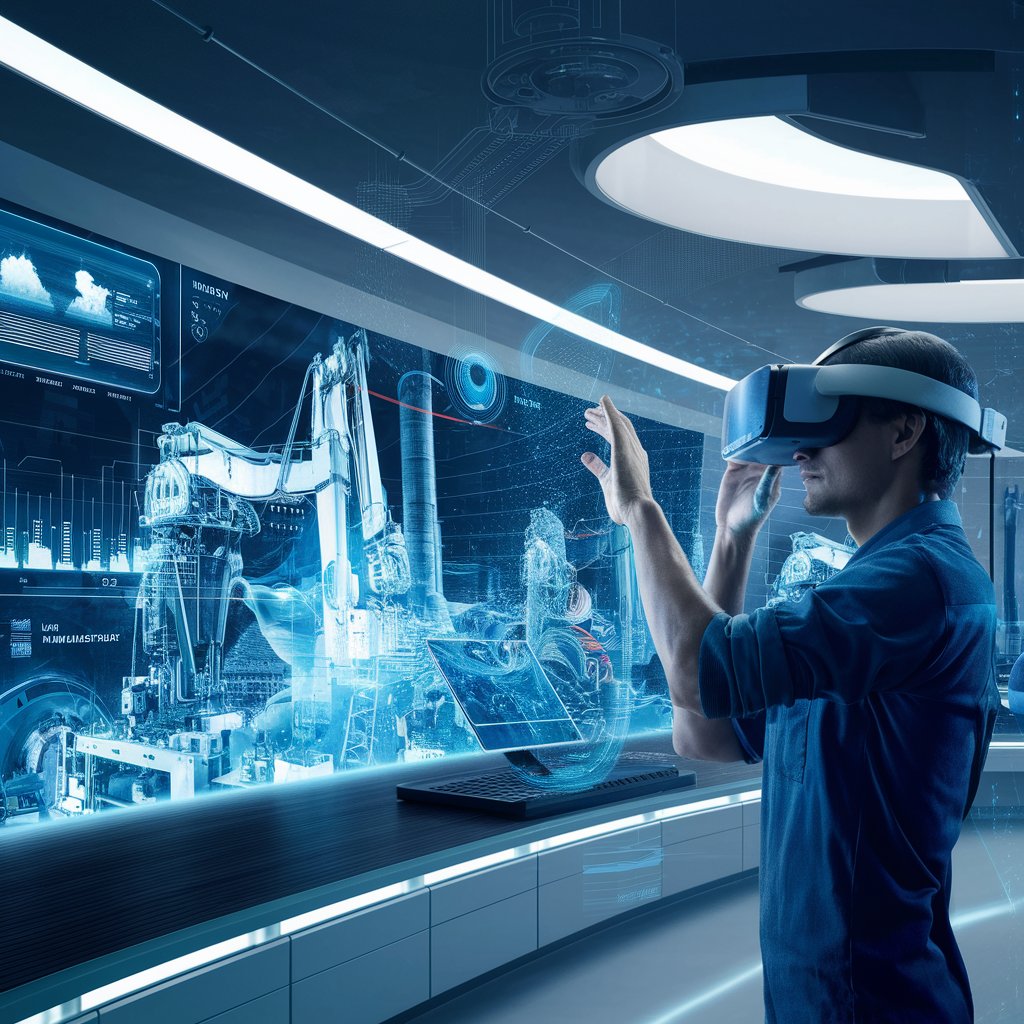Revolutionizing Manufacturing: Leveraging Metaverse Technologies for Enhanced Processes and Benefits
In the landscape of Industry 4.0, where technological advancements continuously redefine traditional manufacturing processes, the concept of the metaverse emerges as a transformative force. The metaverse, a collective virtual shared space, combining physical reality with augmented reality (AR), virtual reality (VR), and the internet, offers unprecedented opportunities for revolutionizing manufacturing.
Understanding the Metaverse in Manufacturing
The metaverse represents a collective virtual shared space, merging physical reality with digital environments. In manufacturing, this concept extends beyond mere simulations to encompass entire ecosystems where stakeholders interact, collaborate, and innovate in immersive virtual environments.

Integration of Metaverse Technologies:
Virtual Prototyping and Simulation
One of the primary applications of the metaverse development in manufacturing is virtual prototyping and simulation. By creating digital replicas of products and production lines, manufacturers can test designs, identify potential flaws, and optimize processes before physical implementation. This not only accelerates the product development cycle but also reduces costs associated with traditional prototyping methods.
Remote Monitoring and Maintenance:
Metaverse technologies enable real-time monitoring and maintenance of manufacturing equipment and facilities from anywhere in the world. Through VR-enabled interfaces, technicians can diagnose issues, perform repairs, and conduct preventive maintenance without physical presence, minimizing downtime and maximizing operational efficiency.
Collaborative Design and Production:
The metaverse fosters collaboration among geographically dispersed teams by providing a shared virtual space for design and production activities. Teams can interact with 3D models, share ideas, and iterate designs in real-time, streamlining the decision-making process and ensuring alignment across departments.
Training and Skills Development:
Virtual Reality simulations offer immersive training experiences for manufacturing personnel, allowing them to practice complex tasks in a risk-free environment. From machine operation to safety protocols, employees can acquire and refine skills essential for optimizing manufacturing processes, thereby enhancing productivity and reducing errors.
Benefits of Leveraging Metaverse Technologies:
Enhanced Efficiency and Productivity:
Metaverse tech streamlines design, training, and issue identification, boosting productivity and market speed.
Cost Reduction:
Virtual prototyping and remote monitoring cut material and travel costs, speeding up production.
Improved Quality and Innovation:
Virtual simulations enhance product quality, while collaborative environments foster innovation.
Flexibility and Scalability:
Metaverse allows quick adaptation to market changes and easy production reconfiguration.
Conclusion:
In conclusion, the integration of metaverse technologies holds immense potential for revolutionizing manufacturing processes and unlocking a new era of innovation and efficiency. By leveraging virtual prototyping, collaborative design environments, and remote monitoring capabilities, manufacturers can optimize production workflows, reduce costs, and enhance product quality. As the metaverse continues to evolve, its impact on the manufacturing industry is poised to grow, ushering in a new era of connected and intelligent manufacturing.
To unlock AR/VR’s potential in manufacturing, partnering with a specialized company is key. DevDen excels here, a metaverse development company. Whether upgrading processes, training, or customer experiences, choose DevDen for an innovative manufacturing journey. Contact us now for a more immersive future.



